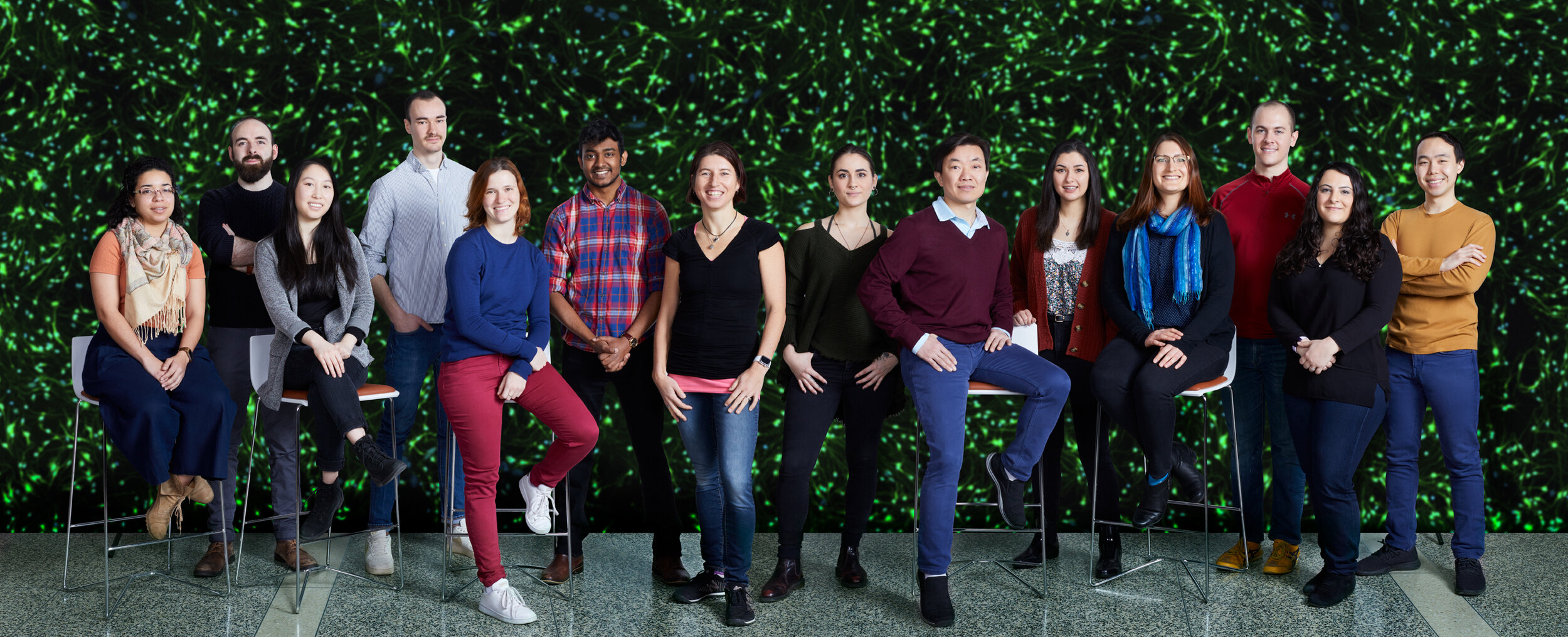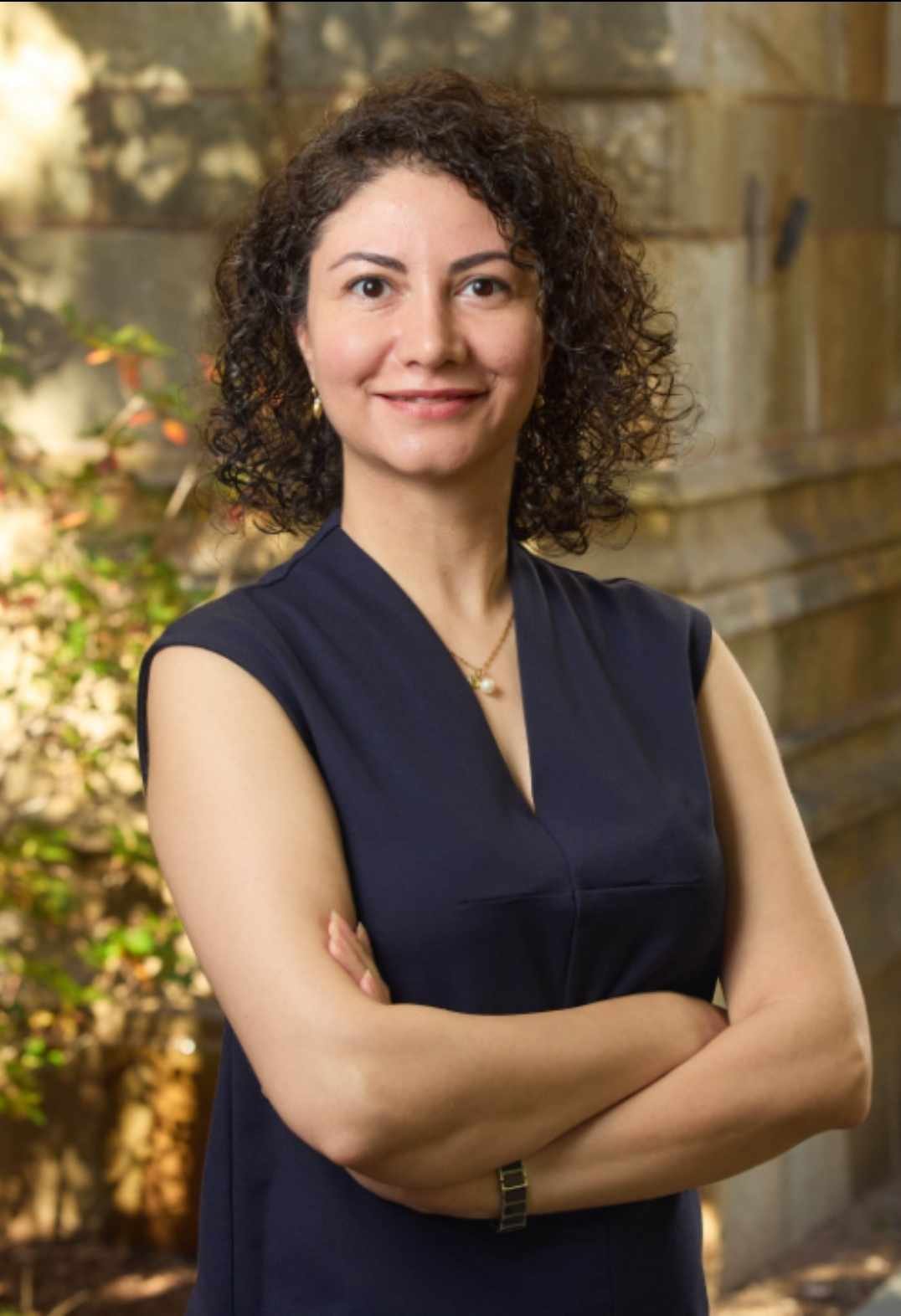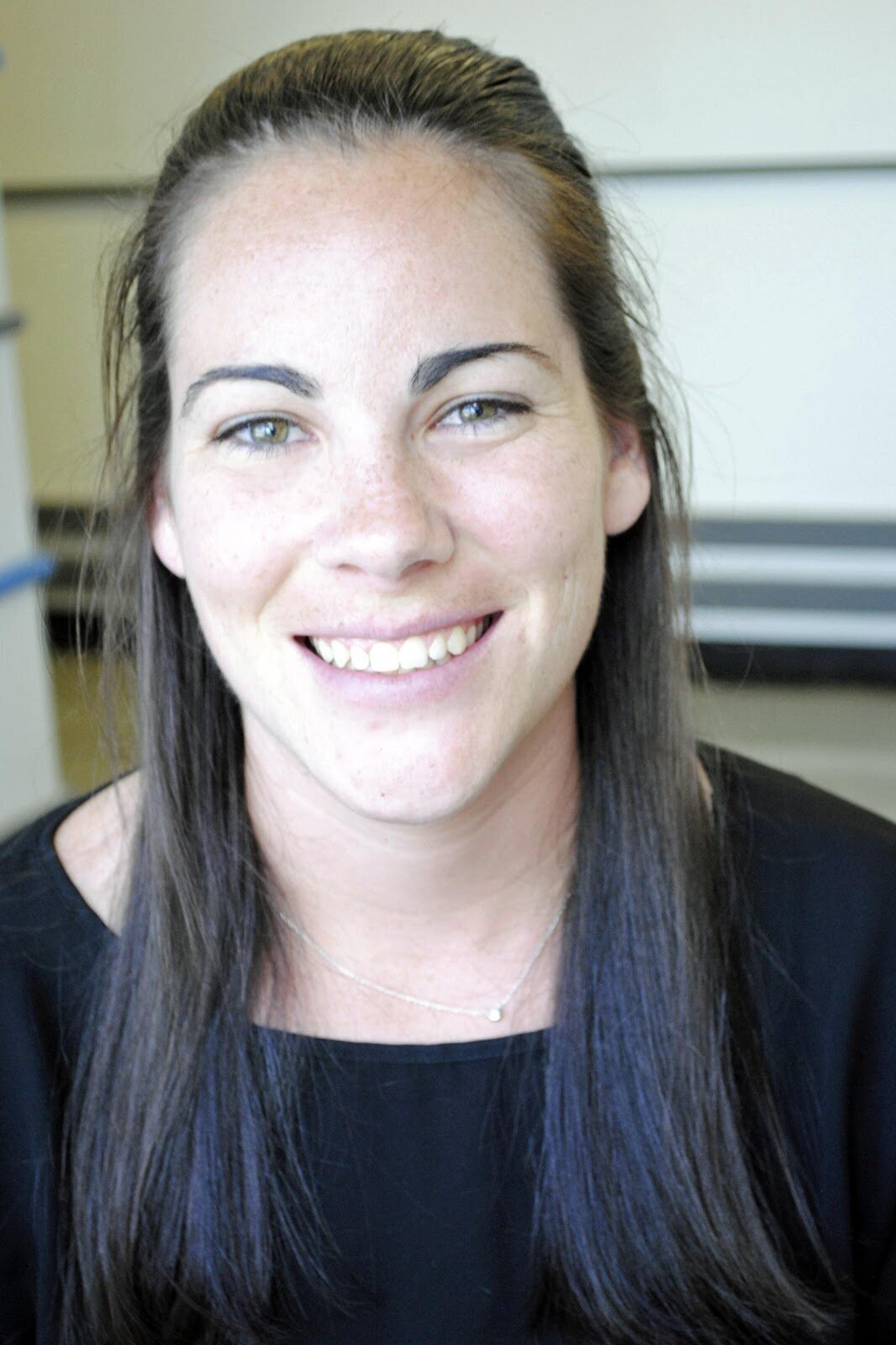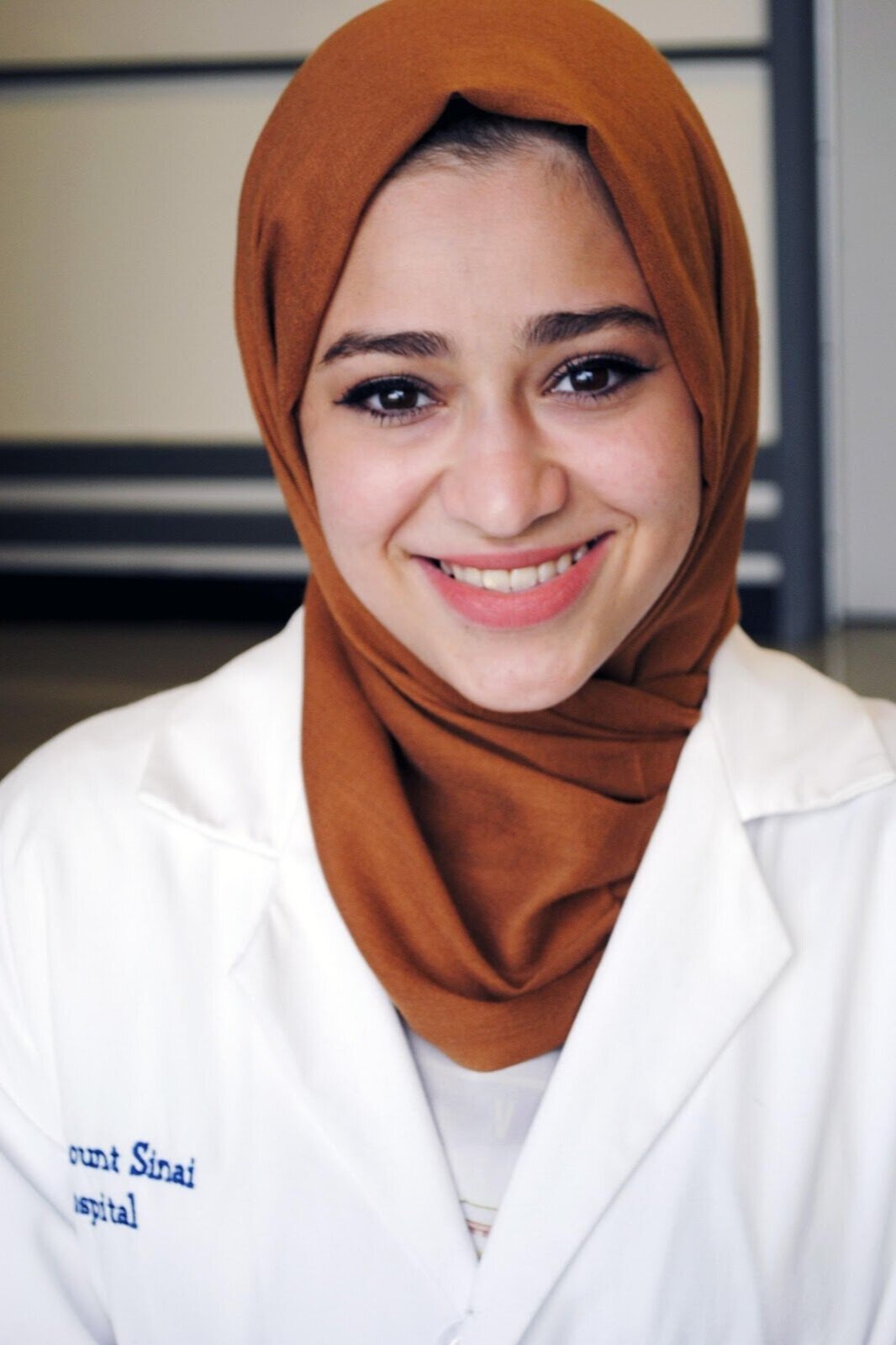
lab members
if contact buttons do not work, right click and select “copy email address”
KRISTEN BRENNAND, PhD
Principal Investigator - Division of Molecular Psychiatry, Departments of Psychiatry and Genetics, Yale University
Adjunct Associate Professor, Pamela Sklar Division of Psychiatric Genetics, Departments of Genetics & Genomics, Neuroscience, and Psychiatry New York Stem Cell Foundation (NYSCF) Investigator, Icahn School of Medicine at Mount Sinai
Kristen Brennand, PhD established her laboratory at the Icahn School of Medicine at Mount Sinai in New York City, but recently move to Yale University School of Medicine, in New Haven, CT. She trained in developmental and stem cell biology with Douglas Melton, PhD at Harvard University and in neurobiology during postdoctoral research with Rusty Gage, PhD at the Salk Institute for Biological Studies. By combining expertise in stem cell biology and neurobiology, she has helped to pioneer a new approach by which to study psychiatric disease.
When she’s not around the laboratory, Kristen is happiest trail running, snowboarding, gracelessly following her husband on his rock climbing adventures, and watching their pre-schooler uncover the secrets of the universe.
AIQUN LI, PhD Associate Professor (Research)
Aiqun’s research focuses on validating novel targets for Alzheimer's disease using stem
cells, CRISPR systems, and next-generation sequencing. He joined the Brennand lab in
October 2017 and currently serves as an Associate Professor in the Department of
Genetics and Genomic Sciences at the Icahn School of Medicine at Mount Sinai. Aiqun
obtained his B.S. and M.S. in Medicine from Nanjing Medical University, followed by a
Ph.D. in Biochemistry and Molecular Biology from the Chinese Academy of Sciences.
He completed his postdoctoral training at Weill Cornell Medicine.
Prior to his role at Mount Sinai, Aiqun worked as a Staff Scientist for the NYSCF-Golub
Stem Cell Research Initiative for Parkinson's Disease at NYSCF, where he later
became an NYSCF Investigator. He was the recipient of the P&G Award, the Shanghai-
Unilever Research & Development Fund, the Bachmann-Strauss Dystonia &
Parkinson's Foundation Research Grant, the Parkinson's Disease Foundation Lucien
Côté Early Investigator Award, the New York Community Trust Grant, the Michael J.
Fox Foundation (MJFF) Target Validation Pilot Award, the Friedman Brain Institute (FBI)
Research Scholar, and the Alzheimer's Association Research Grant (AARG) award. In
his spare time, he enjoys participating in sports activities.
(photo credit: Yang Xiao, PhD)
P J MICHAEL DEANS, PhD Associate Research Scientist
Michael’s research focuses on modelling the additive and synergistic impact of common genetic variants associated with schizophrenia. His work combines human stem cell-based models, CRISPR platforms and advanced imaging techniques to better understand the complex genetic underpinnings of psychiatric disease.
Michael joined the Brennand lab in the Summer of 2018 as a postdoctoral fellow. He previously earned his BSc in neuroscience at the University of Edinburgh in 2011 and a master’s degree in neuroscience with a specialisation in developmental neurobiology at King’s College London in 2012, graduating with distinction. He went on to complete a PhD in neuroscience research in the neuronal circuits and neurodevelopmental disease lab at KCL, studying the functional role of a schizophrenia-linked protein (ZNF804A) in the development of neuronal morphology and maintenance of synapses. Outside of the lab Michael enjoys hiking, reading literature and poetry, visiting museums and observing the flora and fauna of New York.
XI XIAO, PhD Postdoctoral Associate
Xi is studying how glucocorticoid, a hormone associated with the etiology of psychiatric disorders, impacts the functions and common variants of glia. She is interested in how these risks impact neural function in psychiatric disorders. Her work combines human induced pluripotent stem cells (hiPSCs) derived glia models, massive parallel reporter assays, and imaging techniques.
Xi joined the Brennand Lab in August 2022 as a Postdoctoral Associate. She earned her PhD in zoology from Nankai University, studying the mechanisms of depression and schizophrenia using various behavior assays, in vivo and in vitro electrophysiology, and cellular and molecular assays in mice models. Outside of the lab, she loves cooking, traveling with her family and friends, and trying new foods.
LIANG YANG, PhD Postdoctoral Associate
Liang’s research focuses on evaluation of functional phenotypes following with rare genetic risks in neurodevelopment disorders. She combines transcriptomic, electrophysiological approaches and imaging-based strategies to assess and deconvolute the genetic impact of neural phenotypes.Prior to joining Brennand Lab, Liang received her PhD from Yale University. Outside of the lab, she enjoys cooking, hiking and jogging with her family and friends. And she loves her doggie, Juno.
DAVIDE CAPAUTO, PhD Postdoctoral Associate
Davide joined the Kristen Brennand lab as a postdoctoral associate in October 2023. In 2018, he earned his Ph.D. in Genetics and Molecular Biology from Sapienza University of Rome, Italy, where his research focused on unraveling the roles of coding and non-coding RNAs in Amyotrophic Lateral Sclerosis.
In June 2019, as a postdoctoral associate in Flora Vaccarino's lab at Yale, Davide studied Autism Spectrum Disorder (ASD) using iPSC-derived cerebral organoids. Employing cutting-edge transcriptomic and epigenetic technologies such as single-cell RNA-seq, ATAC-seq, and ChIP-seq, he delved into understanding the mechanisms occurring in ASD. His investigations extended to the study of potential enhancers during early neurodevelopment stages, utilizing the massively parallel assay (MPRA) during brain organoid differentiation.
In the Brennand lab, Davide's current focus lies in examining the impact of environmental toxicants potentially involved in neurodevelopmental disorders using iPSC-derived brain organoids as well as neuronal and glial cell lines. Leveraging advanced genetic techniques like CRISPR and MPRA, he also seeks to investigate the effects of genetic variants in genes and non-coding regions associated with neurodevelopmental disorders during the early phases of brain development.
Outside the lab, Davide loves practicing sports, especially soccer, running in East Rock Park in New Haven, and reading thriller books.
TZU-CHIEH HUANG, PhD Postdoctoral Associate
Tzu-Chieh’s research interests center on neuroimmunology. Since joining Dr. Brennand’s lab in 2023, Tzu-Chieh has focused on the impact of neurodegenerative disease risk genes on glial cells, particularly microglia and astrocytes. Her current project involves using iPSC-derived microglia to investigate the role of APOE variants in Alzheimer’s disease.
Before joining Dr. Brennand’s lab, Tzu-Chieh trained in Dr. David Pitt’s lab at Yale, where she employed spatial proteomics, specifically highly multiplexed imaging, to study the spatial localization of distinct microglia subpopulations and their correlation with the pathology of multiple sclerosis (MS).
Outside the lab, Tzu-Chieh is a coffee enthusiast, always on the lookout for the best pumpkin spice latte in town.
SADAF GHORBANI, PhD Senior Researcher (Visiting Research Faculty)
Sadaf received her Master of science in Medical biology (2011-2013) as well as her PhD degree (2018) from University of Bergen, Norway. During her PhD, Sadaf studied the cross-talk among signaling pathways and the role of chaperon proteins that regulate the biosynthesis of dopamine neurotransmitter through phosphorylation modification. Sadaf started her postdoc position at Haukeland University Hospital, Norway (2019) and moved to Brennand lab in July 2021 to continued her position as an exchange researcher. Sadaf is investigating the mechanisms with which the specific rare variants, associated with neuropsychiatric disorders, disrupt the protein-protein interaction network and subsequently lead to abnormal neuronal function and maturation. Her work employs hiPSC derived 3D model (cortical organoids and assembloids), single-cell RNA expression, multielectrode array, BioID, and imaging techniques. Sadaf finds new hobbies every other day so it is hard to say what is keeping her busy this month, but she is consistence in Tango and organizing events for Yale Postdoc association.
NOVIN BALAFKIN, PhD Senior Researcher (Visiting Research Faculty)
Novin's primary research focus is on utilizing CRISPR screens to identify common cellular and molecular signatures among different rare de novo variants associated with neurodevelopmental disorders (NDD). He uses pooled and arrayed CRISPR screens, human stem-cell models, and single-cell based approaches to assess the impact of NDD risk genes during the early stages of brain development. His ultimate goal is to understand the complex molecular and cellular mechanisms that underlie neuropsychiatric disorders and develop precision medicine approaches that can improve the stratification of treatment for patients.
He received his PhD from the University of Bergen, Norway, in 2018, where his focus was on modeling mitochondrial disorders using hPSC. Driven by a desire to deepen his understanding and expertise in modeling more complex disorders, Novin transitioned to the field of neuropsychiatry for his postdoc. Currently, Novin is a senior researcher at the Division of Psychiatry, Haukeland University Hospital, Norway, and a Marie Skłodowska-Curie scholar at the Brennand lab since 2021.
His life outside the lab… Just kidding! Look again, he must be in the lab :)
THANH THANH NGUYEN Postdoctoral Fellow
Thanh Thanh Nguyen is a postdoctoral fellow in the Reilly and Brennand Labs. She is interested in applying functional genomics to understand genetic risks underlying neuropsychiatric and neurodegenerative diseases, and the various contexts under which such risks can manifest. Thanh Thanh completed her PhD in Molecular Pharmacology at the Mayo Clinic, where she utilized a wide range of “-omic” techniques to dissect the interface between non-coding genetics and epigenetics in determining individual responses to drugs and the chemical environment. Born in Moscow, Russia and raised in Hanoi, Vietnam, she left to the U.S. to pursue further educational opportunities and intellectual freedom. Fortunate enough to have come across wise and dedicated mentors along her journey, she deeply values mentorship in academia and understands how impactful it can be.
Outside of the lab she loves cooking, baking, and spending time in nature and with her family and friends. To her, every ordinary moment can turn extraordinary.
MICHAEL B. FERNANDO PhD
Michael is studying how splice isoforms of NRXN1 alpha, a key pre-synaptic cell adhesion molecule, impacts neuronal function and transmission. Michael is particularly interested in NRXN1 alpha interactions with post synaptic ligands, and how these interactions are perturbed in aberrant NRXN1 alpha isoforms in neuropsychaitric patients. Michael is using a combination of transcriptomic, proteomic and electrophysiological strategies to evaluate how aberrant NRXN1 alpha isoforms contribute to deficits in neural activity.
Michel joined the Brennand lab in the spring of 2019 and is co-mentored by Paul Slesinger, PhD. He is currently a 3rd year PhD candidate in the Nash Family Department of Neuroscience. Michael received his B.S. in Biology with Honors from St. Thomas University in 2017. In college, he studied the regenerative mechanisms of TBI and SCI injured zebrafish. Outside of the lab, Michael is a volunteer Co-President of MiNDs, enjoys exploring the city and trying new foods!
CARINA SEAH, MS MD PhD
Carina is an MD PhD student in the Brennand and Huckins labs interested in gene-environment interactions and the genetic architecture of complex diseases. She is using computational genetics approaches and stem cell validation models to study genetic and environmental perturbations in complex psychiatric disorders.
Carina completed her undergraduate degree in Human Biology and master’s degree in Stem Cell Biology and Regenerative Medicine at the University of Southern California while working in the lab of Dr. Justin Ichida studying novel therapeutic approaches for ALS. Outside of lab, Carina loves listening to RadioLab, weightlifting, drinking oat milk matcha lattes, and trekking all the way to Raku in the East Village for the best udon in the city.
SARAH WILLIAMS PhD Candidate
Sarah is a PhD Candidate in Mount Sinai’s Neuroscience program, co-mentored by Drs. Nan Yang and Kristen Brennand. Her research is focused on the cell-type specific and activity-dependent impacts of non-coding genetic variants identified in autism and other psychiatric disorders using stem cell-derived neurons. Sarah started her PhD at the Icahn School of Medicine at Mount Sinai in Fall 2020 after completing her B.S. in Biochemistry at Northeastern University. While in Boston, she worked with Drs. Jordan Smoller and Richard Cummings studying the role of glycosylation in schizophrenia biology based on results from genome-wide association studies. Outside of lab, Sarah spends her free time reading and exploring all of NYC’s museums, live shows, and antique shops.
KAYLA G. TOWNSLEY (B.S.) PhD
Kayla is a Mount Sinai Neuroscience PhD student in the Brennand Lab and Huckins Lab (Mount Sinai) interested in genomic and epigenetic interactions that confer susceptibility to the development of complex psychiatric disorders. Kayla approaches these domains through computational genetics and downstream validation in patient stem cells using high-throughput screening techniques.
She completed her undergraduate at Portland State University in Molecular Biology, with minors in Chemistry and Art. Before arriving at Sinai, she worked as a research assistant in the Ozburn Lab at Oregon Health and Science University (OHSU) studying the molecular underpinnings of Alcohol Use Disorders and the role of circadian rhythms in addiction. Outside the lab, Kayla spends her time organizing in her communities and working to make STEAM fields pro-Queer and pro-BIPOC.
JOY LEE PhD Candidate
Joy is a Genetics PhD student in the Brennand Lab and the Cotsapas Lab at Yale. Her research focuses on the investigation of common variants in neurodegeneration and microglia development. Joy is currently validating putative causal variants through the use of fine-mapping and high-throughput screening techniques, as well as employing multi-omics analysis in microglia.
Joy completed her undergraduate degree in Life Science at National Taiwan University. Prior to Yale, she worked in Dr. Peter Chi’s lab to study the mismatch tolerance of DNA recombinant protein in meiosis. Outside of lab, Joy is a member of the Yale Camerata Choir and Yale Danceworks. She also actively engages with student groups for internationals, Genetics students, and women in science. Plus, Joy loves food.
MATIAS MURILLO PhD Student
Matias is a neuroscience (INP) PhD student in the Brennand Lab and Cafferty Lab at Yale. His current research focuses on spinal cord injury and repair, in particular development and repair of the corticospinal tract. He is interested in understanding the molecular changes that happen during development, in adulthood after injury, and how to revert or enhance some of those changes to promote axon regeneration and ultimately functional recovery.
Matias obtained a B.S. in Cell and Molecular Biology from Western New Mexico University. Before coming to Yale, he was a Post-Baccalaureate Fellow at Northwestern University, where he studied the neural mechanisms underlying motor impairments post stroke, and the use of biomaterials, as well as iPSC-derived neurons to model traumatic brain injury. In his free time, Matias likes playing tennis, board games, cooking, and traveling.
JASMINE LEE PhD Student
Jasmine is a Genetics PhD student in the Brennand Lab and the Huckins Lab at Yale. She is interested in understanding the genetic regulatory architecture of neuropsychiatric diseases using both computational approaches and human induced pluripotent stem cell models.
She completed her undergraduate degree in Molecular and Cell Biology at University of California, Berkeley. Before coming to Yale, she worked in Dr. Paul Wolters’ Lab at University of California, San Francisco, exploring the molecular changes of human donor lungs across the lifespan and understanding the pathogenesis of IPF. Outside of lab, she enjoys hiking, cooking, and spending time with her cats.
EMILY WERTHEIMER PhD Student
Emily Wertheimer is a PhD student in the Interdepartmental Neuroscience Program where she is co-mentored by Dr. Kristen Brennand and Dr. Ifat Levy. Emily is interested in leveraging genetic, stem cell, and neuroimaging techniques to investigate the relationship between metabolism and behavior, particularly in instances of eating disorders and obesity. Before beginning the INP, Emily completed a post-bacc in the Levy Decision Neuroscience Lab and a BS in neuroscience and music at Trinity College. Some things she enjoys (even more than brains!) include: hiking, CrossFit, reading, music, dogs, and being outside.
APRIL PRUITT PhD Candidate
April Pruitt obtained a Bachelor of Science in Biology with minors in Chemistry and Psychology from the University of Louisiana at Lafayette in May 2020, graduating summa cum laude. Currently, April is a PhD candidate in the Interdepartmental Neuroscience Program and the Medical Research Scholars Program at Yale. She is a Kavli Institute for Neuroscience Scholar, Autism Science Foundation Predoctoral Fellow, and a recipient of the HHMI Gilliam Fellowship. April studies the effects of estrogen on brain development in the context of genetic forms of Autism Spectrum Disorder. When she’s not in the lab, April takes and teaches dance classes, reads the cheesiest romance novels, and eats chocolate ice cream.
OVAUN LATOUCHE PhD Student
Ovaun is a PhD student in the Genetics Department who joined the lab in March 2023. He is co-mentored with Steven Reilly. He is interested in understanding the genetic architecture of neurodegenerative diseases.
Ovaun completed a Bachelor’s in sociology from Stony Brook University, and then a Master’s in biology from NYU in 2020. At NYU, he worked in the laboratory of Dr. Hernando-Monge, where he developed a novel piggyBac genome editing system to introduce point mutations in melanoma in vitro models. He then worked as a Research Associate in the laboratories of Panos Roussos and Kristen Brennand at Mount Sinai, where he utilized pooled CRISPR screens and hiPSC-derived stem cells to study gene regulation in neurodegenerative and neuropsychiatric disorders.
Outside of the lab, he enjoys biking and board games.
ALFRED KIBOWEN Postgraduate Associate
Alfred joined the Brennand Lab in October 2023 as a postgraduate associate working with Michael Deans, PhD. Michael’s work uses human stem cell-based models, CRISPR platforms and advanced imaging techniques to better understand the complex genetic underpinnings of psychiatric risk. In Michael’s current project, Alfred utilizes these approaches in the context of the gene-environment interaction, investigating the combined effect of cannabis exposure and schizophrenia gene risk on cellular and transcriptomic readouts. Alfred graduated with a B.A in Neuroscience from Amherst College in 2023. Here, he completed a senior honors thesis that utilized primary neuronal monolayers to investigate the role of dysfunctional synaptic proteins in the etiology of autism spectrum disorder (ASD). Specifically, Alfred functionalized a methodology for the tracking of neuroligin3, a trans-synaptic protein linked with ASD. Since then, Alfred has developed a passion for drug addiction neuroscience, following personal experiences of drug misuse in his family. Alfred was born and raised in Nairobi, Kenya, and intends to pursue a PhD in neuroscience in the US in order to contribute to efforts in science empowerment and psychiatric research at home. He especially hopes to contribute the understanding of drug addiction there. Outside of the lab, Alfred is an active member of the Catholic and African communities on campus. He also really enjoys eating food.
STEPHEN MAURER Undergraduate Student
Stephen is an undergraduate majoring in Neuroscience at Trinity College, Hartford, Connecticut. He is interested in research that utilizes human pluripotent stem cells (hPSCs) to model neurodegenerative and neuropsychiatric disorders to gain a deeper understanding of these conditions and to uncover innovative treatment methods for a wide range of debilitating human diseases. Stephen is currently assisting Dr. Novin Balafkan in the Brennand Lab, where they are studying neurodevelopmental risk genes suspected of hindering neuronal development and neurogenesis. Outside of the lab, Stephen enjoys volunteering as an assistant director at a local art gallery and exercising at a CrossFit gym.
JARED F. KING, MS Lab Manager
Jared is a dedicated lab and data manager for the Brennand Lab. With a strong background in systems neuroscience, he obtained his Master of Science degree in Psychology from the University of Oregon. During his time there, Jared engaged in fascinating research projects focused on unraveling the intricate neural correlates of autism, odor processing, and olfactory navigation in the brain. He has earned numerous awards, including departmental honors for his research and is an alumni of the McNair Scholar’s Foundation.
Following his graduate studies, Jared continued to expand his expertise as a Research Associate in the Waxman Lab, affiliated with the Center for Neuroscience and Regeneration Research at the Yale School of Medicine. In this role, he contributed to cutting-edge investigations exploring various aspects of pain behavior and spasticity following spinal cord injury. When he is not working, Jared enjoys creating works of art, such as painting, drawing, leatherwork, and bronze sculpture. He also enjoys various martial arts and creative writing projects.
lab alumni
NADINE SCHRODE, PhD
Nadine studied the genetic mechanisms underlying neuropsychiatric disorders, such as schizophrenia, in human iPS cell models. She was specifically interested in common variants and used CRISPR/Cas9 genome editing to elucidate their impact on the transcriptome and phenotype of neurons.
Nadine joined the Brennand lab in April 2016 and was initially co-mentored by Pamela Sklar due to her inclination for computational biology. Nadine performed her PhD research on mechanisms of cell fate choices during early development and in embryonic stem cells at Sloan Kettering Institute in New York. She received her doctorate from the Ludwig-Maximilians University in Munich in 2015. In her free time Nadine enjoys reading epic fantasy and science fiction, baking bread and hiking.
SEOK-MAN HO, MSc, PhD
Seok-Man investigated functional roles of schizophrenia-associated genes in hiPSC-neural cells. To do that, he utilized CRISPR activation and interference platforms for transcriptional modulation of the genes. Subsequently, Seok examined their contribution to neuronal function by observing synaptic and neurite development along with neuro-electrical activity.
Seok joined the Brennand lab in Jan. 2014. as a Ph.D student in the Developmental and Stem Cell Biology graduate program at ISMMS. Seok received his Master’s degree in Biomedical Sciences from Sungkyunkwan University in Korea, 2012. In his free time, he plays with his two kids.
ERIN FLAHERTY, MSc, PhD
Erin characterized how patient derived hiPSC neurons with heterozygous deletions in NRXN1, a presynaptic cell adhesion molecule, impact alternative splicing of NRXN1 and population wide neuronal activity. Erin was particularly interested in how specific NRXN1 isoforms may contribute to neuronal function.
Erin joined the Brennand lab in the spring of 2015. Erin received her B.S. and M.Sc. in Biology and Biotechnology from Worcester Polytechnic Institute. Erin’s master’s thesis was done in the Ryder lab where she investigated the cell autonomous roles of MIG-10 and ABI-1 in neuronal migration in C. elegans. Outside of the lab, Erin enjoys hiking in the catskill mountains, running along the NYC rivers, and spending time with friends and family.
PRASHANTH RAJARAJAN, PhD
Prashanth charted how the higher order chromatin landscape (“3D genome”) changes across neural differentiation (from neural progenitors to glia and excitatory neurons) and used the maps to identify potentially novel target genes of known schizophrenia risk-associated noncoding common variants.
Prashanth joined the Brennand lab in the summer of 2015 and was co-mentored by Schahram Akbarian, MD, PhD. Prashanth received his B.S. in Psychology (Cognitive Science concentration) with Honors from Michigan State University in 2013. In college, he studied the effects on prosody on word segmentation and the role of motor areas in the human brain in auditory beat perception. Outside of the lab, Prashanth is a competitive Latin ballroom dancer and an avid listener and learner of South Indian classical music.
RAWAN ABDELAAL
Rawan worked on the interactions between motor neurons and glial cells in amyotrophic lateral sclerosis (ALS) pathology using mouse and iPS cell-based models combined with NGS technology. She mostly focused on iPSC culture systems including differentiation of iPSCs into ALS relevant cell types (e.g. motor neurons, astrocytes, etc.) as well as organization of multiple lines of ALS patient-derived iPSCs and differentiated cells. Rawan graduated with a BS in Biotechnology from the City College of New York in Fall 2015. Rawan first joined as a technician in February 2016 and then assumed a new role as PhD student in the lab at Mt. Sinai in August 2018. In her spare time, Rawan enjoys attending jazz concerts and fashion events.
NATALIE BARRETTO, MSc
Natalie worked on differentiating GABAergic interneurons from neural progenitor cells (NPCs) with the goal of co-culturing ribo-tagged inhibitory and excitatory neurons to study risk-associated common variants of schizophrenia.
Natalie started in the Brennand lab as an undergraduate volunteer during the fall of 2016 and continued her time in the lab as a Master’s student. She obtained her B.S. in Neural Science from New York University in 2017. In her spare time, Natalie enjoys podcasts, cappuccinos and flat whites, amateur photography, and bossa nova.
SOPHIE COHEN Research Associate
Sophie is a research associate who joined the Brennand lab this fall. She works alongside Dr. Meilin Fernandez Garcia in creating CRISPR interference, activation, and knock-out libraries in stem cells, with the goal of uncovering the genetic interactions that underlie neuropsychiatric disorders.
Sophie completed her Bachelor’s of Science in 2018 at Lawrence University, and went on to do a Master’s of Neuroscience at the Vrije Universiteit in Amsterdam, NL. During this time, she wrote her thesis at the Amsterdam Medical Center, developing a blood brain barrier model to investigate the barrier’s dysfunction and breakdown in epilepsy. When Sophie isn’t busy in lab, she likes to ride her bike, paint science-y scenes, watch the NBA, and go on adventures!
KRISTINA DOBRINDT (aka REHBACH), PhD Postdoctoral Fellow
Kristina investigated the functional effects of common non-coding Schizophrenia risk variants on neural cell types and their interaction with different genomic backgrounds, carrying either a low or high burden of genetic risk for Schizophrenia.
Kristina joined the Brennand lab in January 2019 as a postdoctoral fellow and is being funded by the German Research Foundation (DFG). She earned her diploma/master’s degree in Molecular Biomedicine (2005-2010) and completed her PhD at the Institute for Reconstructive Neurobiology at Bonn University, Germany, by establishing a disease model and drug screening for the neurodegenerative disease HSP. After her PhD work, she was the leading scientist for the European consortium COSYN, focused on precision medicine, at Life&Brain company. Kristina combines stem-cell disease modeling with CRISPR editing, high-content imaging and Genetics&Genomics, with a special focus on mentoring, translational research and trans-disciplinary team science.
Outside of research, Kristina spends her time (white water) kayaking, biking, skiing and in search of new exciting activities.
SAMUEL K. POWELL MD/PhD Student
Sam completed his MD/PhD program at the Icahn School of Medicine at Mount Sinai. Interested in Neuroscience and Psychiatry, he is studying cell-type specific chromatin dynamics using human iPSC-derived neurons and post mortem tissue. He is particularly interested in how risk loci for psychotic diseases may disrupt chromatin dynamics in different neurotransmitter systems and how such disruptions may contribute to abnormal neuronal phenotypes.
He joined the lab in the summer of 2017 and is co-mentored by Schahram Akbarian, MD, PhD. When not in lab, Sam works as the Chair of the Mental Health Clinic of the East Harlem Health Outreach Partnership, a student-run clinic for those without insurance. There, he volunteers as a Cognitive-Behavior Therapist and provides supervised medication-management for patients with various psychiatric disorders, while also conducting clinical research. In college, he studied neural mechanisms of drug addiction in animal models. In his spare time he enjoys reading, chess, exercising, drag, jazz and classical music, and assorted fine teas.
ELIZABETH LAMARCA PhD Student
Liz is studying the role of RNA/DNA hybrids (R-loops) in neural transcriptional regulation, with a focus on genes involved in neuronal differentiation and synapse formation. She is particularly interested in how aberrant R-loop formation can lead to improper neuronal development and ultimately contribute to neuropsychiatric illness.
Liz joined the Brennand lab in the winter of 2017 and is co-sponsored by Schahram Akbarian, MD, PhD. She received her bachelor’s degree in neuroscience from Columbia University in 2012 - there, she worked in a lab studying a glutamate / serotonin receptor complex putatively involved in hallucinogenic signaling and a target of antipsychotic drugs. After graduating, she worked in a behavioral neuroscience lab at Princeton University, where she studied the role of microglia in obesity-associated synapse degeneration and cognitive impairment. Outside of lab, Liz enjoys playing Chess, hiking, and going to music/comedy shows in NYC.
PABLO L. CARDOZO, MSc PhD Candidate (Visiting Researcher from Brazil)
Pablo is a PhD Candidate in the Federal University of Minas Gerais in Brazil, who will join Kristen’s laboratory in the Yale University during Spring of 2021 as part of his exchange period funded by the Fulbright Commission. While in Kristen’s lab, he is going to investigate the role of genetic risk factors in regulating synaptic elimination in schizophrenia.
Pablo completed his undergraduate studies in Biological Sciences in the Federal University of Minas Gerais (UFMG, Brazil) with part-time studies in the University of Toronto. Afterwards, he got his Master’s degree in Biochemistry and Immunology by UFMG, whereby he investigated the mechanisms underlying the glial contribution to synaptic elimination in schizophrenia, using human-induced pluripotent stem cells as main model. During his PhD studies, Pablo continues developing this research project. Outside of the lab environment, he enjoys watching Cruzeiro’s soccer matches, playing games on his laptop, having barbecues with his friends and travelling.
OLIVIA LIVOTTI Postgraduate Associate, Lab Technician
Olivia joined the Brennand Lab in August 2022 as a Postgraduate Associate and acting Lab Technician. In her day to day projects, she utilizes donor-specific human induced pluripotent stem cells (hiPSCs) from cases and control donors to test how genetic variants linked to disease by Genome-Wide Association studies impact gene expression and cellular function in a cell-type specific manner. She applies various genetic manipulation assays, mainly CRISPR-Cas9 techniques and Massively Parallel Reporter Assays, to different types of human induced brain cell types.
Previously, Olivia earned a Bachelor of Science in Psychology from Southern Connecticut State University, and a Master of Science in Neuroscience from the University of Hartford in which she earned a reward, William S. and Dorothy G. Wallace Memorial Award for outstanding academic achievements by a neuroscience research student. During her Master’s, she completed an internship at the University of Connecticut under Dr. Crocker investigating mechanisms of oligodendrocyte demyelination in multiple sclerosis, and remyelination strategies. Outside of lab, she enjoys reading science fiction novels, being outdoors, and exploring new places!
ISABEL WOOD Postgraduate Associate
Isabel joined the Brennand Lab in September 2022 as a postgraduate associate working with Dr. Novin Balafkan. She is interested in applying stem cell models to explore the pathogenesis of disease, and has specifically been exploring the effects of rare and highly-penetrant autism spectrum disorder (ASD) mutations on neurodevelopment using CRISPR-Cas9 gene editing in human induced pluripotent stem cells.
Isabel graduated from Amherst College in 2022 where she double majored in Neuroscience and English. Her interest in the molecular basis of ASD emerged during her senior honors neuroscience thesis work, titled Investigating the Role of Zyxin in Synaptogenesis. When she’s not in the lab, Isabel enjoys cooking, playing board games and rooting on Boston sports teams.
RAY RIGAT Postgraduate Associate
Ray is a postgraduate research associate who joined the Brennand Lab in January of 2023. He works alongside Dr. Sadaf Ghorbani in applying CRISPR-based screens to donor-specific populations of glutamatergic and GABAergic neurons to examine the phenotypic impacts of chromatin loop manipulation on neuronal cell types with the goal of discerning the genetic architectures that underlie neuropsychiatric disorders.
Ray received his Bachelor of Science from Fordham University in 2022, majoring in Integrative Neuroscience with concentrations in Cell and Molecular Neuroscience and American Catholic Studies. At Fordham, he conducted research in Dr. Marija Kundakovic’s lab, investigating the neuroepigenetic effects of estrogen on hypothalamic expression of metabolic genes in rodent models.
When Ray isn’t in the lab, he enjoys reading (particularly non-fiction), hiking, and taking candid photos of his friends.
MEILIN FERNANDEZ GARCIA, PhD Associate Research Scientist
Meilin research aims to dissecting the genetic risk convergence between neurosphychiatric disorders by integrating single-cell transcriptomics, multiplexed genetic perturbation screens and multi-omics epigenome analysis in human derived neurons to determine causal genetic drivers leading to aberrant neuronal function in Autism and Schizophrenia.
BRIANA WYMAN Postgraduate Associate
Briana is a postgraduate research associate who joined the Brennand Lab in July 2023. She is working closely with senior graduate student, Joy Lee, to help validate putative causal variants in neurodegeneration. Through the use of massively parallel reporter assays (MPRAs) and CRISPR-based screens she will be able to examine the phenotypic impact of variant manipulation to donor-specific populations of microglia.
Briana completed her undergraduate and graduate master’s degrees in Biology and Molecular Cell Biology at Quinnipiac University. Prior to Yale, she worked in Dr. de Lencastre’s Lab to study the stress response and longevity of C. elegans by microRNA miR-71 and the transcription factor HLH-30/TFEB. Outside of the lab, Briana enjoys hiking in New Hampshire, trying new soup recipes, and watching Twilight on a rainy day.
ANNABEL SEN Associate Researcher
Annabel graduated from Brown University with a major in Health and Human Biology. During her undergraduate studies, she was involved in an epigenome-wide study for veterans with PTSD at the Veterans Association. After that, she went on to complete a post-baccalaureate at Columbia University while working at Mount Sinai doing computational and wet-lab analysis of CRISPR-based stem cell models of PTSD and Autism.
Annabel joined Dr. Brennand’s lab in December 2020, where she works alongside Dr. Meilin Garcia studying ASD, specifically generating CRISPR multiplex models with stem cells. Outside of lab, Annabel enjoys playing with her puppy Winnie the Poodle and exploring New Haven.








































